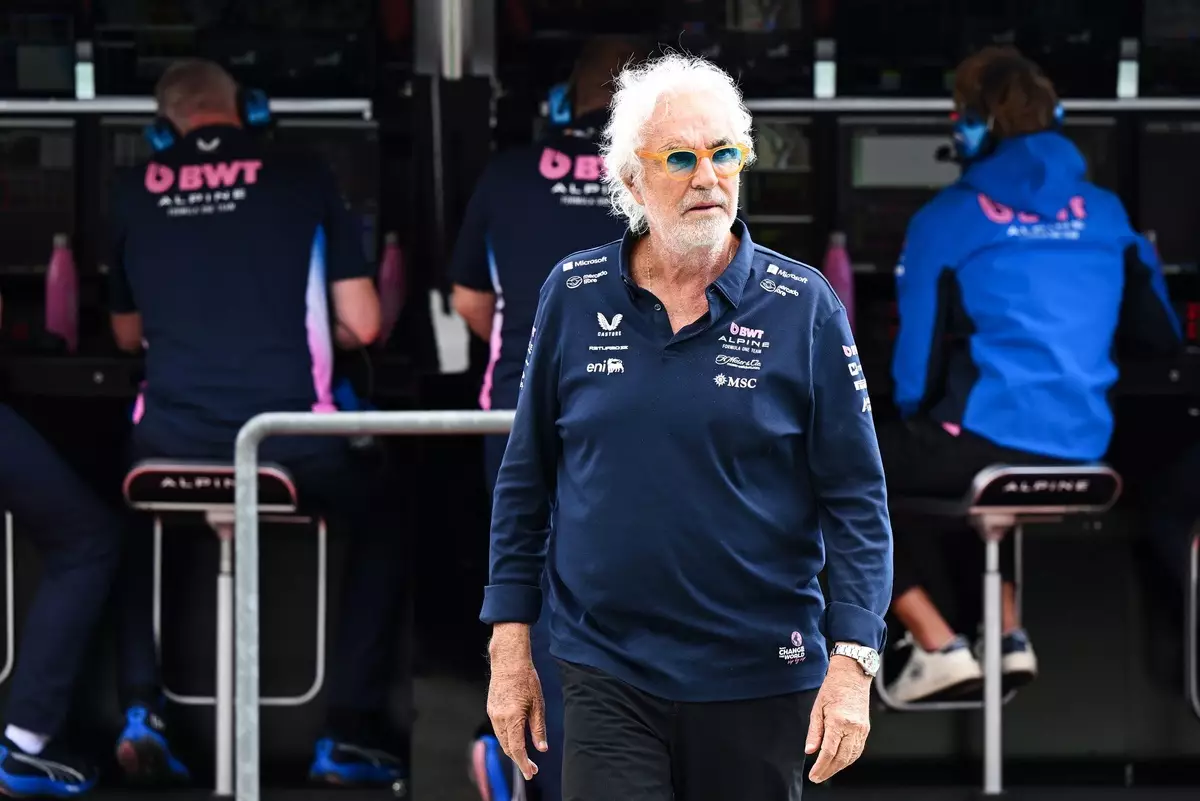In the ever-evolving landscape of Formula 1, few figures stir as much intrigue and polarization as Flavio Briatore. The 75-year-old Italian has long been a titanic presence within the sport, an executive whose strategic acumen has proven to be formidable. Recently, he has taken up an influential role at Alpine as an executive advisor, stepping into a deeper involvement following the departure of team principal Oliver Oakes. Briatore is unabashedly ambitious, suggesting that the 2026 season could usher in a new era of competitiveness for Alpine devoid of excuses. His confidence appears to be the driving force behind a formidable push to reshape the team’s fortunes.
Briatore’s brash declaration, promising race victories in 2026 and championship contention the following year, signals his intent not only to bolster Alpine’s performance but to restore its reputation within the sport. His history suggests that he does not shy away from high stakes; the former team principal was instrumental in guiding Renault to its triumphant reign in the mid-2000s. This ambitious outlook, while thrilling, poses challenges that Briatore is keenly aware of. The real question is whether his vision can metamorphose into tangible results on the track.
The Challenges Faced by Alpine
The upheaval that Alpine has experienced in the early months of 2025 underscores the precarious position of the team. With a mere seven points amassed and a strategic reshuffling involving Jack Doohan’s replacement by Franco Colapinto, the atmosphere is thick with urgency. The recent struggles highlight systemic issues within the team that go deeper than driver performance. Briatore’s adrenaline-fueled optimism plays a crucial role in rallying the team around a common goal. Yet, one must question: Is simply wishing for success enough when history reveals layers of complexity entrenched in racing dynamics?
Briatore’s assertions hint at a necessary pivot—Alpine must not only embrace new regulations slated for 2026 but also align its resources optimally. As the team transitions to Mercedes power units, the stakes are even higher. For Briatore, the switch signifies more than an equipment upgrade; it embodies a lifeline from years of underpowered Renault engines that have historically hampered competitive performance. However, transitioning to a new engine supplier also comes with its own set of hurdles. There is no guarantee that the Mercedes engine will immediately yield results or that the team can adapt to the nuances of its operation seamlessly.
Competition and Collaboration: The Reality Check
As Briatore points out, securing a driver of Max Verstappen’s caliber is beyond Alpine’s reach, necessitating a focus on optimizing their existing assets. This pragmatic approach indicates a shift from dreamy aspirations to tangible operational strategies. Briatore is clear-eyed about the dreadful truth that raw talent alone is insufficient when competition is fierce. The Formula 1 landscape is populated with teams that have extensively developed their capabilities; killer instinct on track is fortified by collaboration behind the scenes.
Moreover, Briatore’s dramatic return to F1 traces a path of redemption from the scandalous backdrop of the 2009 ‘Crashgate’ incident that marred his image. While his legal battles restored his position, the journey back into the F1 spotlight necessitates navigating skepticism surrounding his leadership credibility. He insists that he’s already committed entirely to the cause, having accrued a capable team to support his efforts across various operational facets. However, one cannot overlook the overarching shadow of his past and how it might influence the team’s culture and dynamics.
The Road Ahead: A Cautious Optimism
Flavio Briatore’s grandiose ambitions for Alpine come with a palpable zeal that is enlivening the paddock. It incites excitement among fans and stakeholders alike but concurrently raises pointed questions about feasibility. While ambition is a powerful motivator, it can also blind one to the gritty reality of competition. The road to becoming a winning team is fraught with difficulties that no amount of bravado can wish away.
Alpine stands at a crossroads, and its future hinges not only on Briatore’s charisma and vision but also on how effectively the team can respond to both existing challenges and new opportunities that will arise with the rule changes in 2026. The countdown has begun, and as the team gears up for what Briatore hopes will be a renaissance, all eyes will be fixated on Alpine’s transformation from a middling contender to a fierce competitor. The narrative that unfolds in the coming months will be pivotal in defining not only Briatore’s legacy but also the future trajectory of the Alpine brand in Formula 1.


Leave a Reply